Brain tumour research funded in memory of Skye Hall
- Published
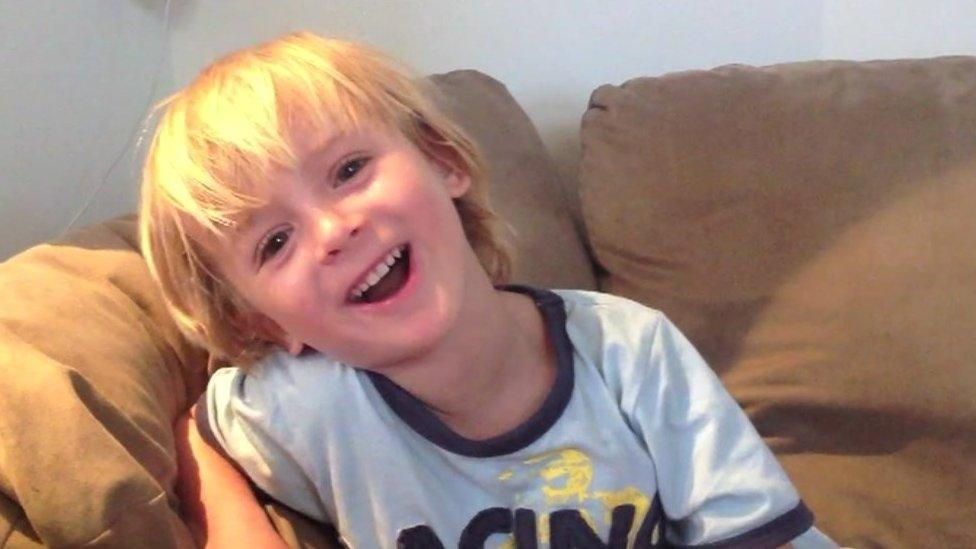
Skye Hall died a year after being diagnosed with an aggressive brain tumour
The family of a boy who died after being diagnosed with an aggressive brain tumour say they have "significant hope" the condition can be treated better in the future.
Skye Hall, from Abingdon, Oxfordshire, died aged five in 2014.
His family set up the Blue Skye Thinking charity which has co-funded a research programme into new treatments.
Skye's mother Sally said the support for their fundraising appeals showed her son "hasn't been forgotten".
Skye was diagnosed with a brain tumour in 2013 and was treated with chemotherapy and radiotherapy but died a year later from the neuro-toxicity side effects of the treatment.
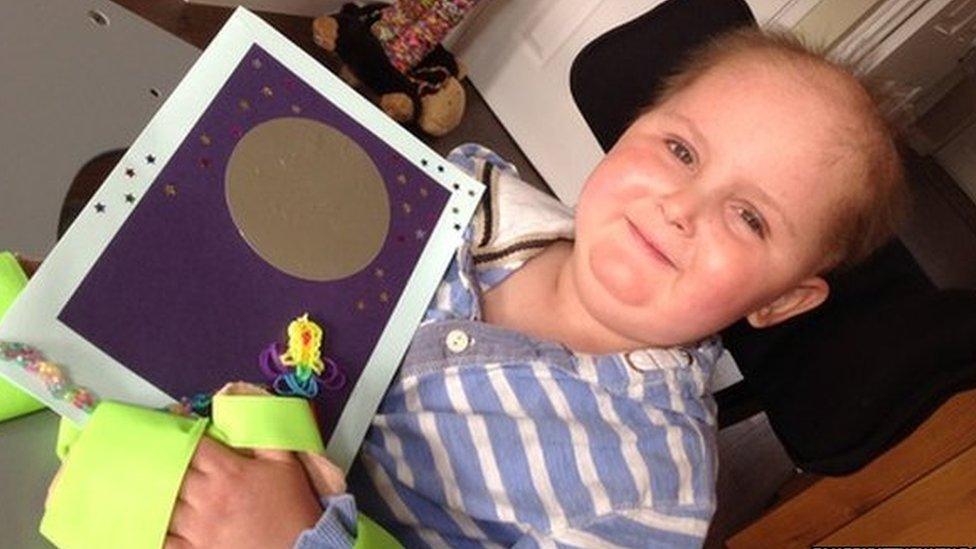
Skye began making loom bands during his hospital stays
Among the fundraising efforts the family mounted was completing a challenge which Skye began during his treatment to create the world's longest loom band bracelet.
Along with Children with Cancer UK and Little Hero, the charity is funding a new £700,000 research programme into combating medulloblastoma, the most common high-grade brain tumour in children.
"Our world felt like it ended with Skye, but you've got to keep going and through this research project there is significant hope", Skye's mother said.
"It's been incredibly hard for all charities so reaching our fundraising target has come at no better time. It means these key projects can continue and ultimately make a huge impact for children in the future."
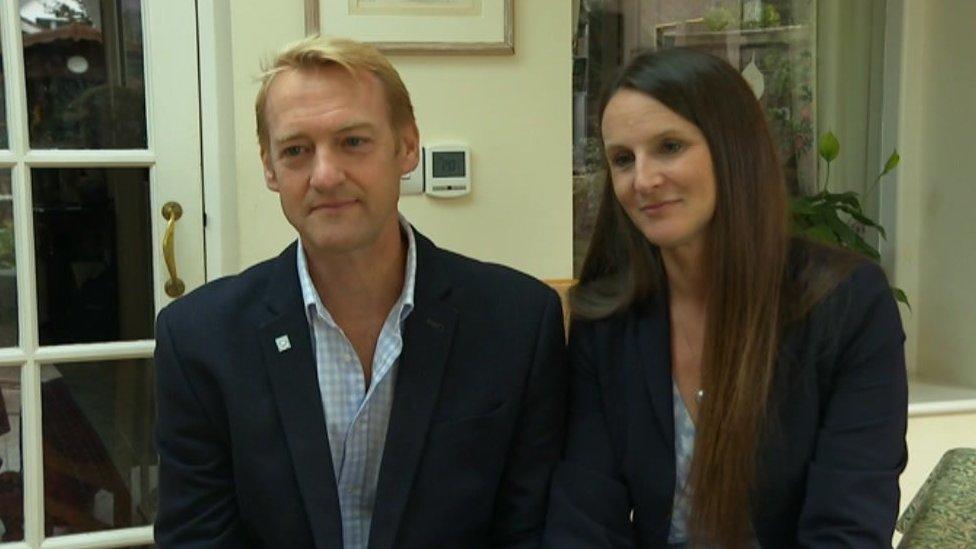
Andrew and Sally Hall set up Blue Skye Thinking after Skye's death
Prof Steve Clifford of the University of Newcastle, who is leading the research, said the donations would help "make a big impact".
"Current therapies don't work against these particular types of cancer. We need all new therapies by understanding the biology of the cancer and specifically targeting that biology.
"They should be much safer and less toxic and help us treat a significant proportion of children who would otherwise have died from their cancers," he added.

Follow BBC South on Facebook, external, Twitter, external, or Instagram, external. Send your story ideas to south.newsonline@bbc.co.uk, external.
Related topics
- Published1 September 2014
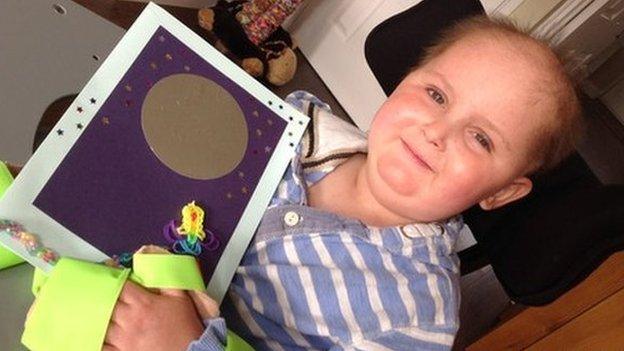
- Published13 August 2014
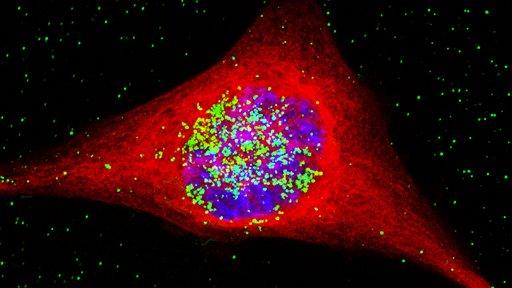
- Published25 June 2014
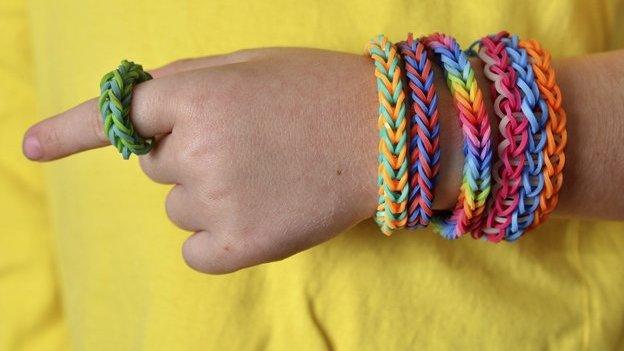
- Published23 December 2013